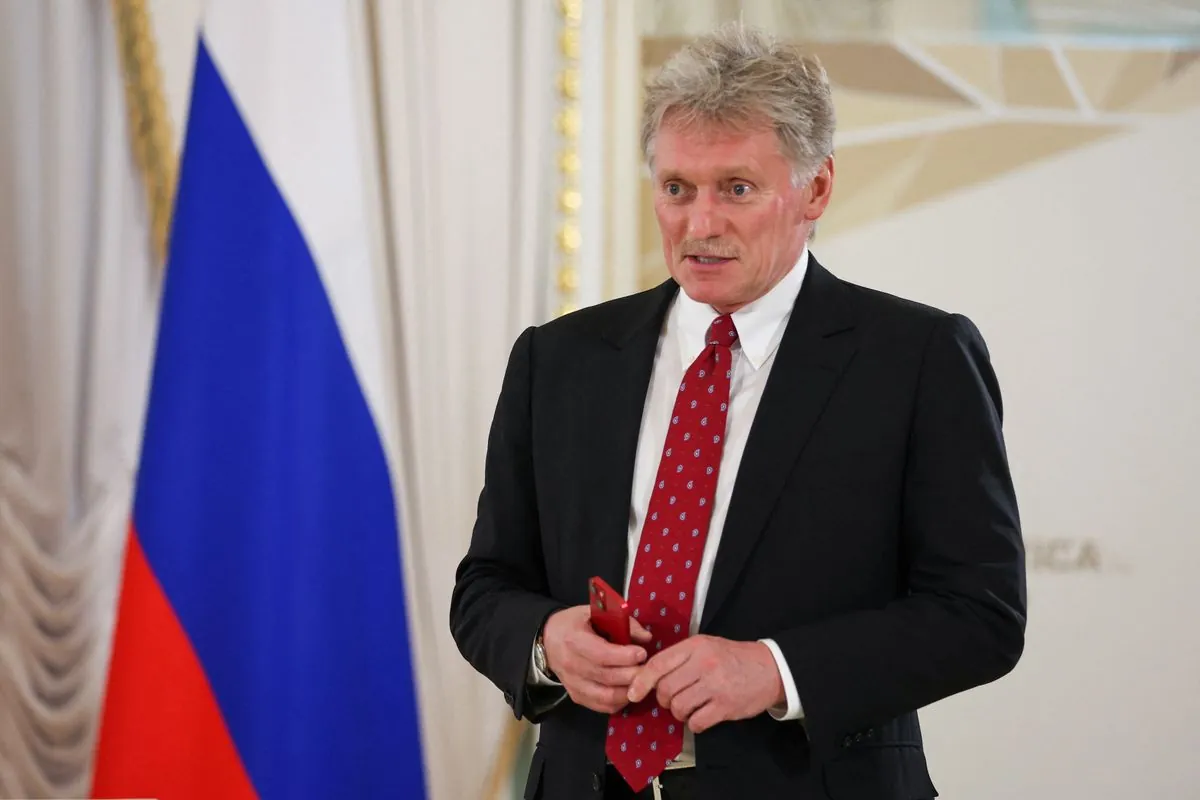In a recent interview, Dmitry Peskov, the Kremlin spokesman, shared Russia's perspective on the upcoming U.S. presidential election, scheduled for November 2024. Peskov indicated that Moscow views Democratic candidate Kamala Harris as a more predictable opponent compared to Republican Donald Trump.
Peskov, who has been serving as the Kremlin spokesman since 2000, emphasized that regardless of the election outcome, there is no expectation of improved relations between Washington and Moscow. This statement reflects the current state of U.S.-Russia relations, which have reached a historic low point.
The spokesman's comments come in the context of a complex geopolitical landscape. The United States and Russia, both permanent members of the UN Security Council and possessors of the world's largest nuclear arsenals, have been locked in a state of tension reminiscent of the Cold War era.
Peskov dismissed Trump's claim that he could resolve the Ukraine conflict within 24 hours if re-elected. The spokesman stated:
"There is no 'magic wand' to resolve the Ukraine crisis overnight in the way that Trump has promised."
[[Kremlin's skepticism about quick resolution]]
This skepticism is rooted in the complex nature of the Ukraine conflict, which began in 2014 with Russia's annexation of Crimea and has since escalated, leading to significant international involvement.
Peskov's remarks also touched upon previous statements made by Russian President Vladimir Putin. In February 2024, Putin had expressed a preference for Joe Biden over Trump, describing the former as an experienced "old school" politician. However, with Biden's withdrawal from the race, the Kremlin's stance has shifted to viewing the Democratic Party as a whole as more predictable.
The spokesman's comments highlight the intricate dynamics of international relations and the impact of U.S. domestic politics on global affairs. The U.S. presidential election system, involving the Electoral College rather than a direct popular vote, adds another layer of complexity to these considerations.
It's worth noting that the United States has provided significant military aid to Ukraine since the conflict's escalation in 2022. This support has been a point of contention between Washington and Moscow, contributing to the deterioration of bilateral relations.
Peskov emphasized that U.S. actions perceived as detrimental to Russian interests have exceeded acceptable limits. This statement reflects the ongoing tensions between the two nations, which have faced numerous challenges in their diplomatic relations since the end of the Cold War.
As the 2024 U.S. presidential election approaches, the international community, including Russia, will be closely watching the developments. The outcome of this election could have far-reaching implications for global geopolitics, particularly concerning the ongoing situation in Ukraine and the broader landscape of U.S.-Russia relations.
